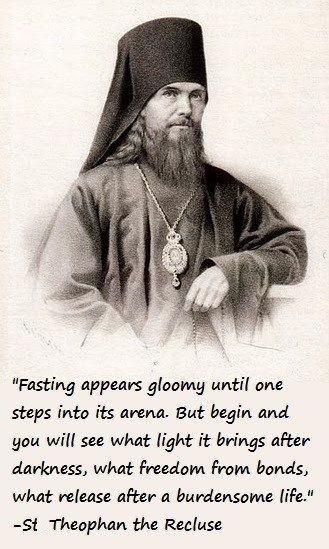Fasting and Abstinence
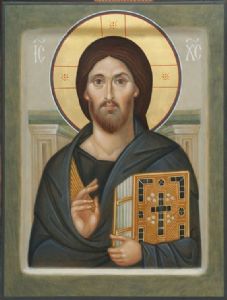
When you fast, do not be like the hypocrites with their gloomy faces: they disfigure their faces so that people may see that they are fasting! Amen, I tell you: they have received their reward. But you, when you fast, anoint your head and wash your face, so that people may not see that you are fasting. Only your Father Who is in secret will see, and your Father, Who sees in secret, will reward you openly.
Do not store up treasures for yourselves on the earth, where moth and rust consume and where thieves break in and steal. Instead, store for yourselves treasures in heaven, where neither moth nor rust consume, and where thieves do not break in and steal. Indeed, where your treasure is, there your heart will be also.’
– Jesus Christ (Matthew 6: 16-21)
Why do we fast?
The practice of fasting from food and restricting the type of food that we eat has been part of the Tradition of the Church since the time of the Old Testament. This was inherited by the New Testament Church after the coming of Christ and has remained a universal custom among Orthodox Christians throughout the centuries. The Saviour Himself assumes that this is a practice that we would continue, as his instruction in the quotation above is not for if we fast but for when we fast.
When we abstain from certain types of food, we give up some of the things that we might enjoy: the flavours, the textures, the feeling of being full after a good meal. This can help us to learn to focus on the things that are eternal rather than the fleeting desires and pleasures of life, on things that are important and lasting rather than the things that are temporal and will pass away, on the things of God rather than the things of the world.
When we fast, we give up food altogether— one of the necessities of life—if but for a short time. The mild discomfort that this can bring ought to remind us of our own mortality, and the need to prepare ourselves in this world for the life of the age to come. In his epistle to the Galatians (chapter 5), St Paul warns us against gratifying the desires of the flesh—those things that tie us to the fallen world—at the expense of our spiritual lives and our growth into God.
However, fasting is not merely about subduing the flesh but also allowing the spirit to grow. Our physical fasting ought to be combined with prayer, repentance, and participation in the Holy Mysteries. We may wish to consider seasons of fasting as a time to make a confession of our sins if we have not done so recently, and to examine how we express the love of Christ in our daily dealings with other people. Can we somehow use our time and other resources for the benefit of others? Can the money we save on the luxuries that we have given up be donated to a good cause?
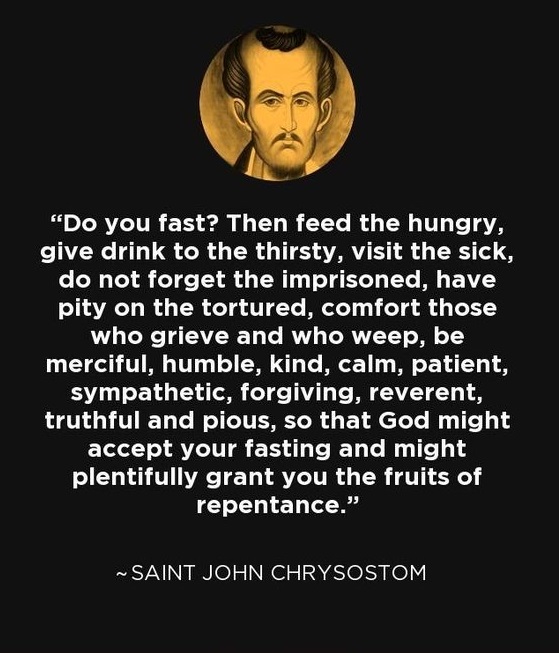
In any discussion of fasting within the Church, we should be aware that there has never been uniformity of practice in east or west. Perhaps more than any other aspect of church observance – with the possible exception of local calendars of saints – fasting observances have varied considerably from place to place and from rite to rite. What has always been maintained, however, is the spiritual benefit of fasting at certain times and seasons.
The discipline of fasting and abstinence set forth here reflects the Western Orthodox practice of the Orthodox Church of the Gauls.
The Spirit of Fasting
The practicalities of fasting and abstinence have perhaps never been easier than in our own day, with ready access to refillable gym bottles for water “on the go”, fresh fruit and vegetables on sale all year round, and an ever-increasing range of vegetarian and vegan foods available to us. What might pose a challenge for us is the spirit of the fast.
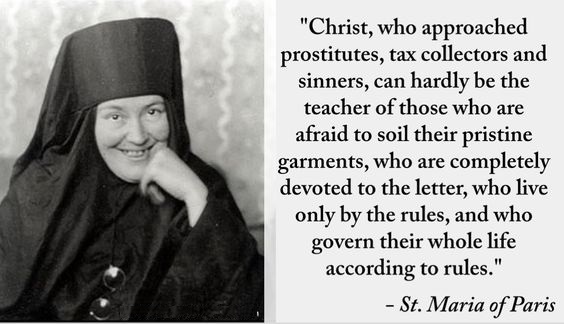
asting and abstinence should always be reverently and prayerfully observed and should never become an occasion for any kind of hyper-legalistic rule-following. We may be strict about our own meals at home and at work, but we ought not to refuse the hospitality of friends and family or hurt others’ feelings because the food they serve us might contain a little butter. It also should not give rise to self-righteous comparisons with those who may be less observant.
Our fasting is a private matter between us, God, and our spiritual director. Indeed, as the Saviour has taught us, our fasting and abstinence should be done in such a way that nobody should think to comment on it (Matthew 6). Very seldom is “What are you giving up for Lent?” an appropriate question to ask somebody else, unless perhaps we are genuinely seeking help and advice from those more experienced. Our observance must be permeated with charity and humility, done out of love for God and sorrow for our sins, and should never be a source of contention or pride.
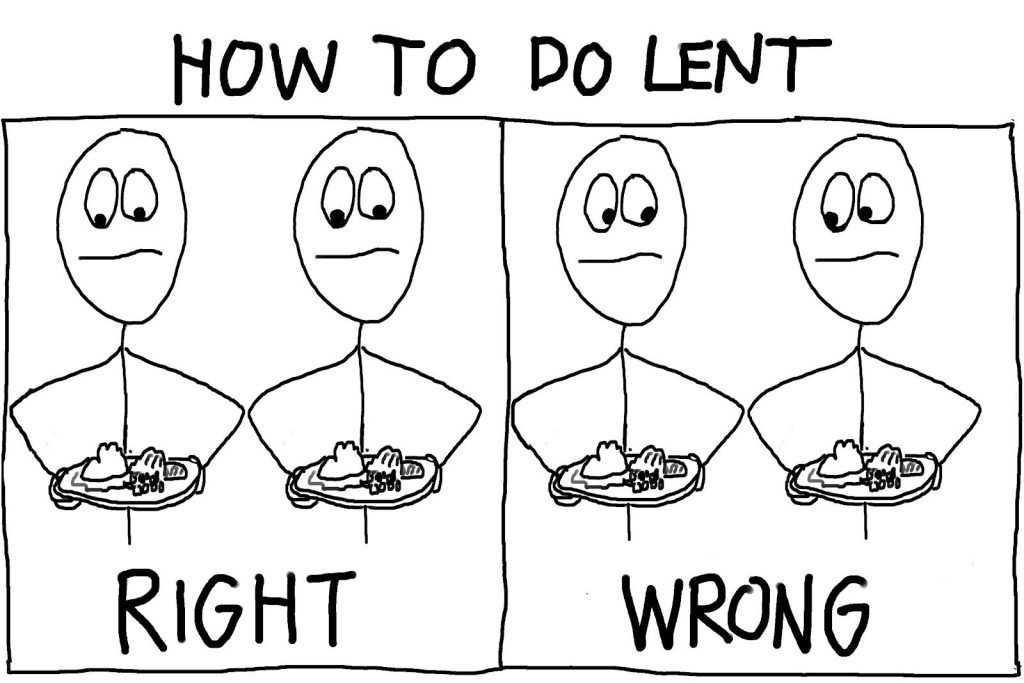
Fasting
Fasting refers to the practice of avoiding food and all drink apart from water.
On a day of fasting, no food is taken until at least until after the Hour of None (approximately 3pm) which is the final liturgical observance of the day, after which one meal, comprising a single course, may be taken.
Unless the fast day is also a day of abstinence, no particular restriction is made in regard to the nature of this meal, moderation being considered a sensible guide. Apart from this, no food should be eaten on a fast day.
Water does not break the fast.
Days of Fasting
Fasting is observed on the following days:
- All Fridays of the year, in honour of the Crucifixion of the Lord.
- The Mondays and Wednesdays of Advent, in addition to the Fridays.
- The season of Lent (Monday to Friday), beginning on Ash Wednesday and continuing to the Friday before Palm Sunday, inclusive.
- The days of Holy Week from Monday onwards. On Holy (Maundy) Thursday, for those receiving Holy Communion, the fast is kept until Communion at the evening Divine Liturgy.
Strict Fast
A strict fast (that is, no food or drink, apart from water, to be taken all day) is prescribed on two days only:
- Ash Wednesday
- Holy (Good) Friday
However, such a fast must be observed with caution, especially by those unaccustomed to regular fasting or who have particular health concerns.
Abstinence
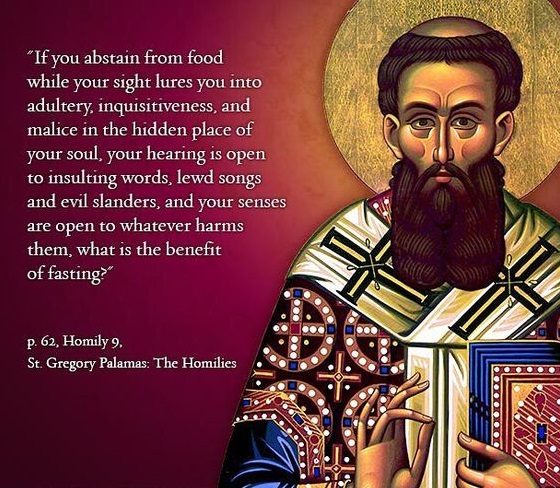
Abstinence, as opposed to fasting, refers to the practice of refraining from eating certain types of food and, unlike fasting, applies all day.
On days of abstinence, we abstain from meat and poultry, and any food products (including eggs, fats, and dairy) derived from them. We also abstain from wine. Fish and crustaceans are always permitted.
Days of Abstinence
Abstinence is observed on the following days:
- All Fridays of the year, in honour of the Crucifixion of the Lord.
- The Mondays and Wednesdays of Advent, in addition to the Fridays.
- The season of Lent and Holy Week, from Ash Wednesday until Holy Saturday, inclusive. On Holy Thursday, a glass of wine may be taken with the evening meal in honour of the Eucharist.
Exceptions
Apart from the Communion fast, fasting and abstinence are not observed at all during the Great Fifty Days from Pascha to Pentecost, for this is the great Week of Weeks, when we live even more fully than usual in the festal joy of the Resurrection.

Similarly, Sundays are never observed as days of fasting – even during seasons such as Advent and Lent – for each Sunday is a celebration of the Resurrection of the Lord and is therefore a Feast day. During Lent, the observance of abstinence is relaxed on all Sundays and on Feasts, when wine may be consumed.
The festal character of Solemnities and the period from Christmas Day through to the Sunday of the Wedding at Cana (the Second Sunday after Epiphany) also means that fasting is not observed at these times, although abstinence is still observed on Fridays as usual.
An exemption from the usual customs of fasting and abstinence may be legitimately presumed for those who are physically weak or sick, advanced in age, very young, or in any reasonable necessity. Expectant and nursing mothers are discouraged from all fasting and abstinence.
Children should be gradually educated and trained in fasting as they grow up, and can be taught abstinence from an early age.
Other Fasts
For those receiving Holy Communion, no food or drink is taken from the time of rising from sleep until after receiving Communion, even on a non-fasting day. As usual, water does not break the fast.
Special fasts are customarily observed by individuals in preparation for Baptism, Chrismation, Marriage, Ordination and similar circumstances as directed by their bishop, priest, or spiritual director.
Private fasts for personal reasons may also be observed. However, the festal seasons should be borne in mind. In cases of uncertainty, the spiritual director should be consulted.
One of the benefits of a parish and indeed a local church being united in its observance is the very real sense that none of us is alone but that we journey together on the path of repentance to our Father’s house. May our fasting and abstinence be a cause of deepening our bonds with God and with each other.
